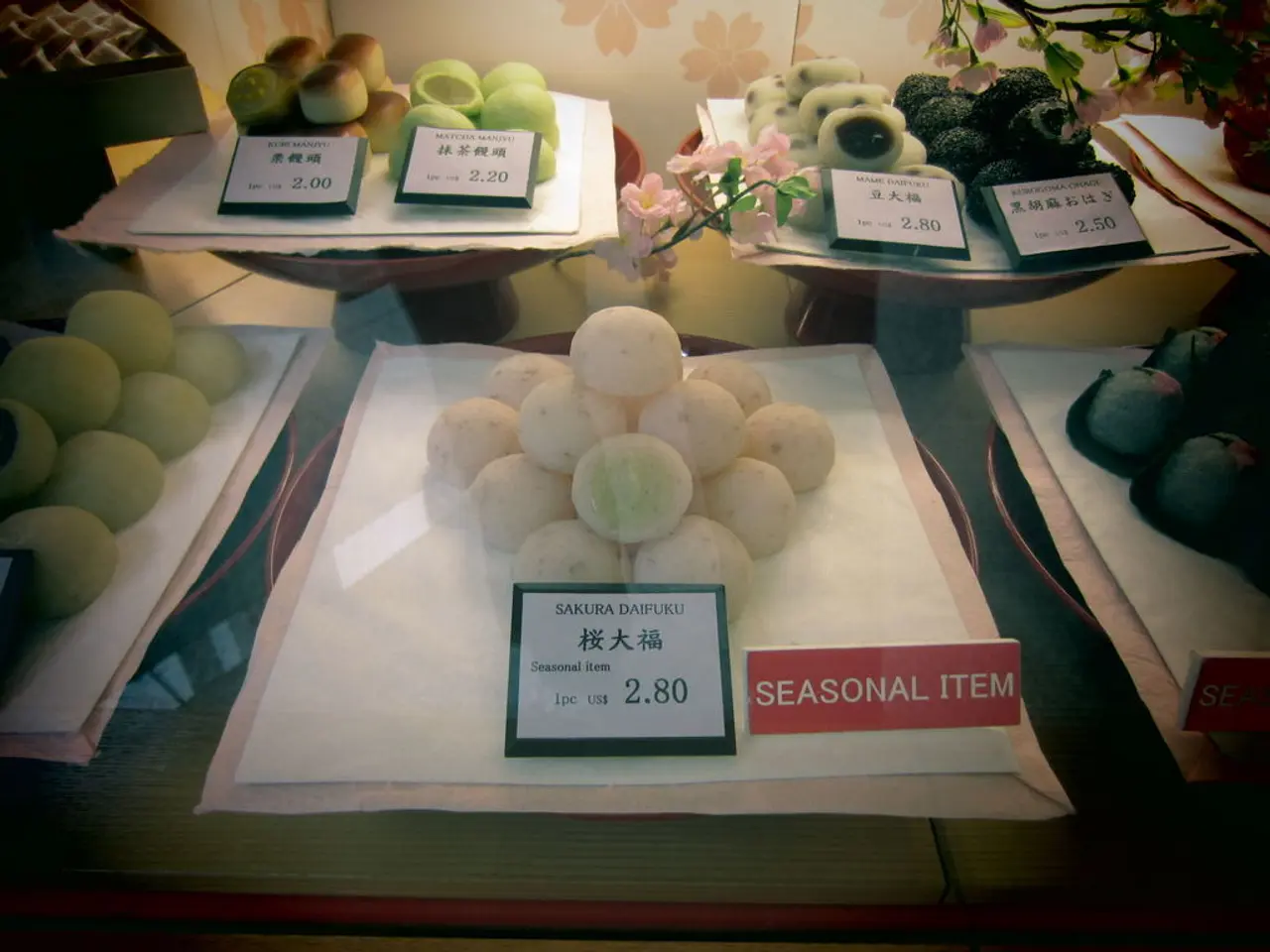The Price of Imported Goods is Dropping Compared to Local Products
In a recent report, the Council of Economic Advisers (CEA) has provided insights into the impact of imported goods on overall inflation rates, challenging the notion that tariffs have a direct and immediate impact on inflation rates.
According to the CEA's analysis, the prices of imported goods have fallen this year, contributing negatively to Personal Consumption Expenditures (PCE) inflation. This decline is primarily due to tariff anticipation effects, supply chain adaptations, and especially large declines in fuel import prices.
One key factor is the importers who accelerated shipments ahead of tariffs taking effect, causing a surge in imports initially but a sharp decline later in the year. This front-loading led to inventory buildup and lower import volumes afterward, reducing upward price pressures over time.
Another significant factor is the decline in fuel prices. Fuel import prices, a significant component of overall import costs, have sharply decreased, offsetting tariff-related price increases in other sectors. Natural gas prices, for instance, have fallen substantially, contributing significantly to lower overall import prices.
The total import cargo volumes are forecast to decline by about 5.6% in 2025, reflecting shifts in supply chains and import demand, which can dampen inflationary pressure from imported goods.
The mixed impact across various goods weakens the overall import price index's upward trajectory. While some consumer and industrial goods saw price increases, other items, especially fuel and certain food categories, saw price declines or minimal increases.
The CEA decomposed the PCE into imported and domestic components, revealing that the imported component of PCE goods prices fell by 0.1 percent from December 2024 through May 2025. The prices of overall goods in the PCE index increased by 0.4 percent during the same period, corresponding to a 1 percent annualized rate.
Interestingly, a similar analysis for the Consumer Price Index (CPI) shows that imported goods have deflated 0.8 percent while overall goods prices have remained constant. This pattern, present in both PCE and CPI, highlights the robustness of the CEA's findings.
The CEA's directional findings using this method of analyzing the PCE are consistent across core goods (excluding food and energy), durables, and nondurables. The findings suggest a deceleration, rather than an acceleration, of inflation due to imported goods prices.
Therefore, the fall in imported goods prices despite tariffs is a testament to the complex trade dynamics at play. The CEA's analysis does not support the idea that fear of tariffs alone can cause inflation.
The Personal Consumption Expenditure Price Index (PCE or PCEPI) is an inflation gauge closely watched by policymakers and financial markets. The CEA's findings contradict claims that tariffs or tariff-fears would lead to an acceleration of inflation. The report underlines the importance of considering the broader context and intricacies of trade when evaluating the impact of tariffs on inflation.
[1] Council of Economic Advisers. (2025). The Effects of Tariffs on Inflation: A Comprehensive Analysis of Imported Goods Prices. Washington, D.C.: White House. [2] International Monetary Fund. (2025). World Economic Outlook Update. Washington, D.C.: IMF. [3] Energy Information Administration. (2025). Monthly Energy Review. Washington, D.C.: EIA. [4] United States Department of Commerce. (2025). International Trade in Goods and Services. Washington, D.C.: Census Bureau. [5] Federal Reserve Bank of St. Louis. (2025). FRED Economic Data. St. Louis, MO: Federal Reserve Bank of St. Louis.
- The decline in fuel import prices, as highlighted by the Council of Economic Advisers (CEA), has been a significant factor offsetting tariff-related price increases in other sectors, thereby impacting the food business indirectly since fuel prices are often reflected in food production costs.
- In analyzing the impact of imported goods on overall inflation rates, the CEA's report also shed light on the financial aspects, revealing that the prices of imported goods have fallen negatively contributing to the Personal Consumption Expenditures (PCE) inflation, which directly affects business profitability and consumer expenditure.




